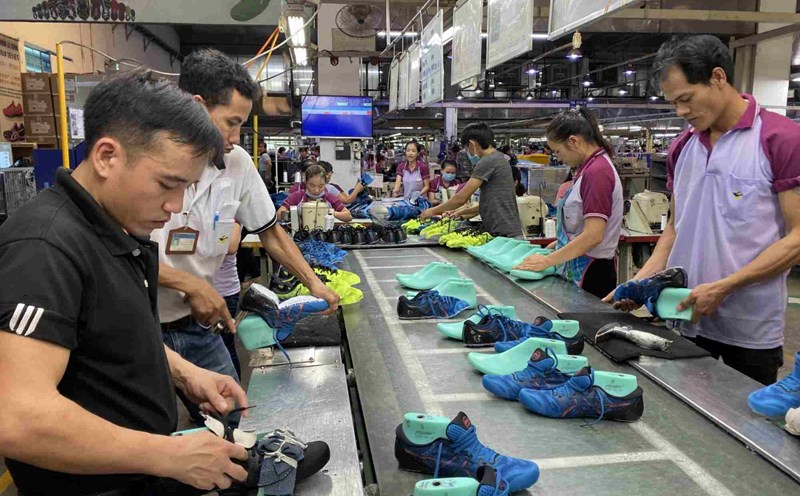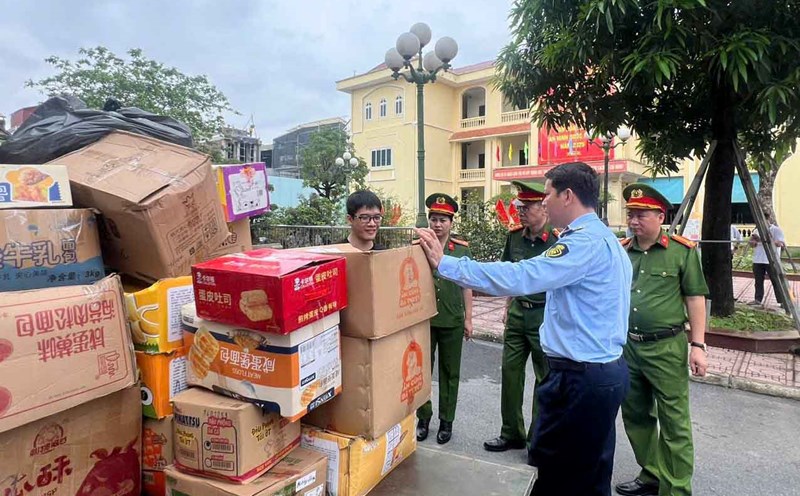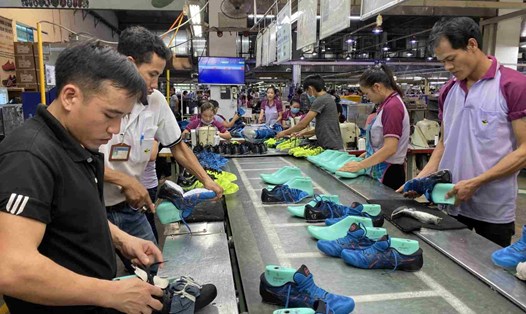One of the notable investments comes from JBS - Brazil's leading meat processing group. This company has announced a plan to pour 100 million USD to build two factories in Vietnam, specializing in the production of products from beef, pork, chicken with ingredients imported from Brazil. In addition to the domestic market, JBS also aims to export to countries in the region.
Meeting with Brazilian President Luiz Inacio Lula da Silva during his visit to Vietnam on March 28, 2025, Politburo member and Prime Minister Pham Minh Chinh welcomed large Brazilian enterprises considering investing in Vietnam, including JBS Group in the food processing sector.
In the field of high technology, Amkor Technology Group (USA), specializing in packaging and testing chips, plans to invest 1.6 billion USD in a 200,000m2 factory in Vietnam. Amkor affirmed that this will be the most modern facility the company has ever owned. Similarly, according to Reuters, Hana Micron (Korea) also plans to pour in 930 million USD to expand the production of electronic chips.
Not only attracting projects in the future, Vietnam is now an important production location for Intel - one of the world's leading technology corporations. Intel's factory in Vietnam plays a key role in the global chip supply chain.
In addition to industry and high technology, the real estate and high-end tourism sectors also recorded strong interest from international investors. The Trump Organization and a domestic partner are implementing projects worth billions of dollars worth of golf courses, hotels and resorts, in which the first project near Hanoi with an investment capital of 1.5 billion USD is expected to start construction in May.
According to many international sources, Vietnam has a prime geographical location, located near the world's busiest commercial waterway, connecting the Pacific Ocean with the Indian Ocean. At the same time, Vietnam is also a gateway to help international enterprises easily access major markets such as: China, Korea, Japan and Southeast Asian countries.
Thanks to this advantage, Vietnam has developed a system of industrial parks in each region, creating conditions to attract foreign investment. The North attracts large electronics corporations such as Samsung and LG. In the South, Ho Chi Minh City is an important economic center with a modern logistics system. Meanwhile, the Central region is increasingly attracting attention thanks to its strong infrastructure development.
To welcome this wave of investment, Vietnam is constantly improving its business environment. The Government has implemented many preferential policies on taxes, investment support, and participation in free trade agreements such as EVFTA and CPTPP, helping to expand export markets and promote international capital flows.
Implementing in the spirit of Resolution No. 163/NQ-CP, the Government is stepping up infrastructure improvement and simplifying administrative procedures to facilitate foreign enterprises. Key transport projects have been strongly invested in, effectively connecting industrial and logistics centers. Administrative reform has also been accelerated, helping to shorten the time for processing documents, improving transparency and efficiency in the business environment.










